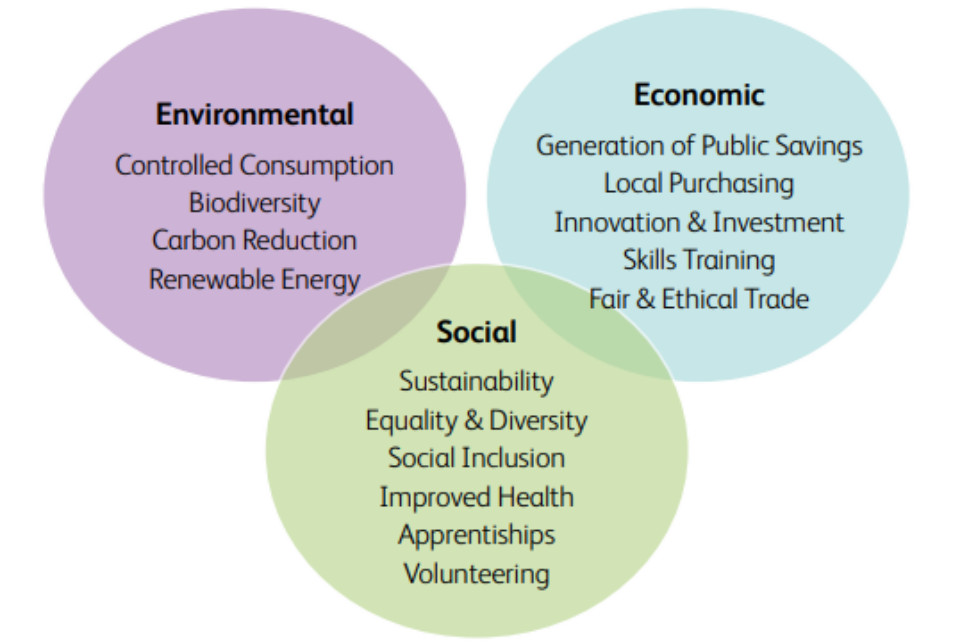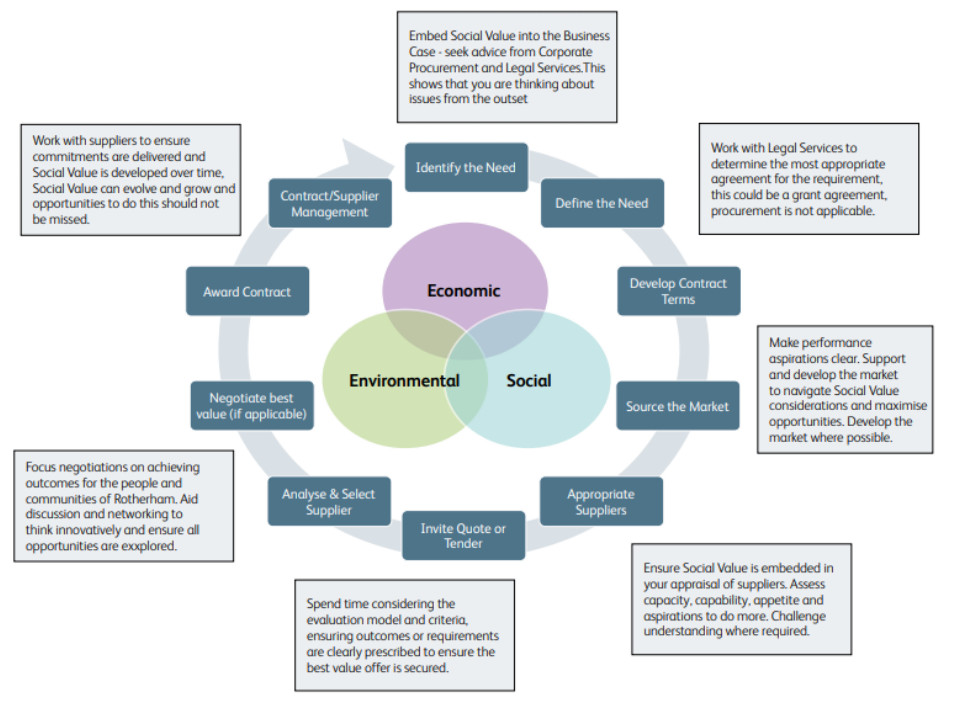Applying Social Value during the commissioning and procurement cycle
To achieve real social value through our commissioning and procurement of contracts, we must learn to think how such benefits can be realised. A full thought process has to be undertaken where a new commissioning/procurement activity/need is identified.
The areas commissioners must consider at the planning stage include
- Why are we doing this?
- What can we achieve for all the stakeholders involved?
- Are there any other outcomes that can be achieved?
The broad headings that fall into the sphere of social value should be considered within the context of identified need. Where social benefits can be obtained, this can lead to significant impact in achieving the Councils Social Value objectives. The table below illustrates the broad sphere of Social Value to stimulate thought processes.

To ensure the success of delivering additional social value through a contract commissioners must ensure that the requirements are embedded into the process. Dependent on the route to market chosen, where and how social value can be delivered needs to be identified.
With the ambition to increase the percentage of spend within the local area, this must be reflected throughout all commissioning activity as defined in the Councils Financial and Procurement Procedure Rules, when undertaking quotation activity at least one must be sought from a local organisation, evidence records must be kept when this is not possible.
Formal commitments must be sought for spend activity which exceed £100,000 in line with the TOMS framework.
If it is not possible to apply social value criteria, i.e., contracts which fall beneath the threshold value, or where the Council is the conduit to generating the funding raised by the provider but has no leverage on how this funding should be spent, commissioners can still apply performance aspirations that would assist in delivering benefits. This would mean the provider has no obligation but rather an agreed aspiration. Such proposals cannot be considered when awarding a contract but incentivisation of this philanthropic behaviour may still generate social value. Figure 4 illustrates when and where to bring clarity about the social benefits to be achieved during the pre-contract commissioning and procurement activity.

